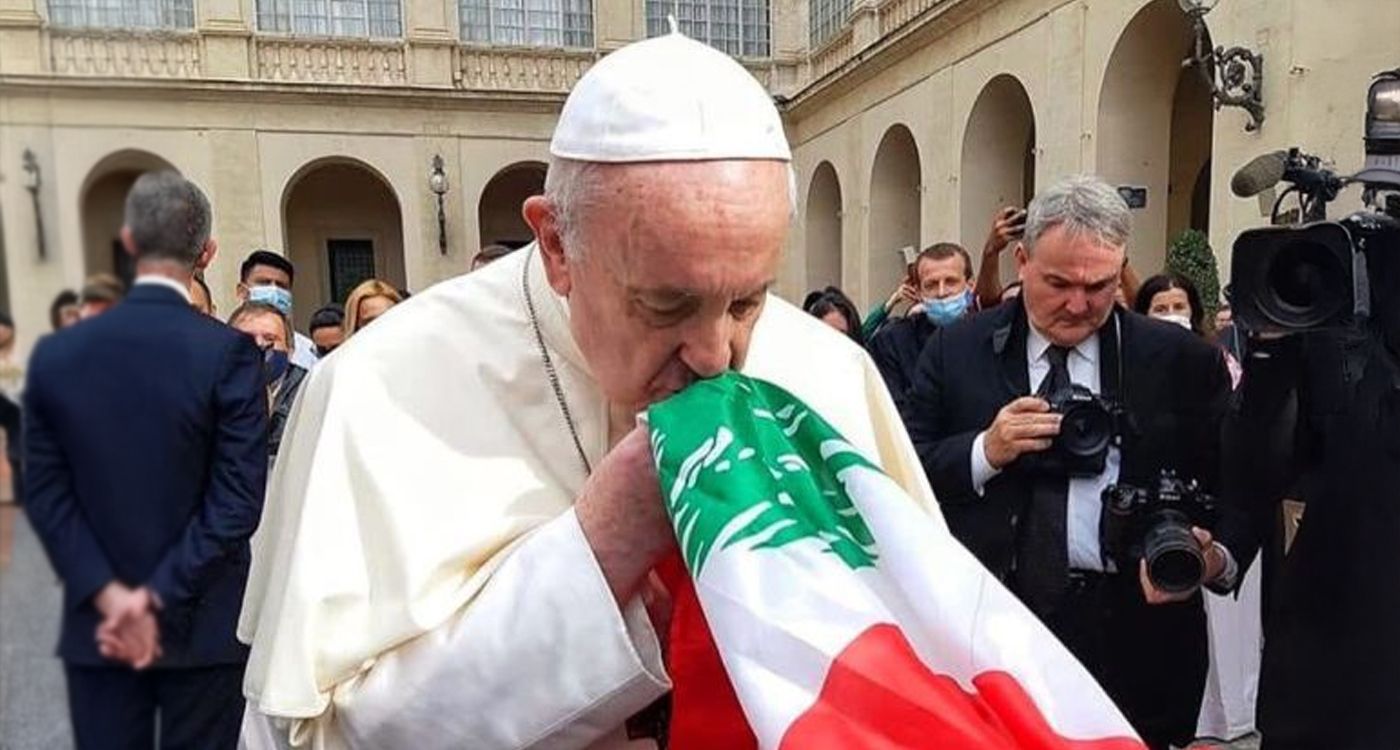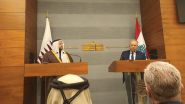
Pope Francis has always kept Lebanon close to his heart. According to those close to him and many of his visitors, the Holy Father has remained closely informed about developments in the country. While he has not visited Lebanon—due to both health concerns and the political vacuum created by the absence of a president and a fully functioning government—he has consistently expressed his concern in various ways: through messages, phone calls, and visits by cardinals close to him. He made his support known whenever possible. He is even said to have told those around him of his wish “to visit Lebanon as soon as possible.”
His pastoral closeness, combined with the Vatican’s diplomatic engagement, led him to affirm in a Christmas 2020 letter to the Lebanese people that “Providence will never forsake Lebanon.”
Most recently, the Pope expressed his joy at seeing that conviction reaffirmed with the election of a new president in January 2025.
Pope Francis’s concern became especially evident following the economic collapse of 2019 and the Beirut port explosion in August 2020. Less than 36 hours after the tragedy, Cardinal Secretary of State Pietro Parolin—the Vatican’s second-in-command—arrived in Beirut.
That Christmas, he sent a heartfelt letter “to all Lebanese, regardless of community or religious affiliation,” delivered through Patriarch Béchara al-Rai. The letter deserves to be quoted at length, as it reflects the deep continuity of the Holy See’s engagement with Lebanon since the time of Pope John Paul II:
“I am deeply pained to see suffering and anxiety stifling the entrepreneurial spirit and vitality of the Land of the Cedars,” wrote Pope Francis. “Even more painful is watching the most cherished hopes of living in peace stolen, along with the chance to remain, for history and the world, a symbol of freedom and a testament to peaceful coexistence. And I, who share both your joys and your sorrows wholeheartedly, feel the gravity of what you are losing, especially when I think of the many young people who have had all hope of a better future taken from them.”
“But on this Christmas day, ‘the people who walked in darkness have seen a great light’ (Isaiah 9:1)—the light that eases fears and inspires hope, affirming the certainty that Providence will never forsake Lebanon and will turn even this sorrow into good.”
“Lebanon is mentioned often in the Holy Scriptures, but above all shines the image offered by the psalmist: ‘The righteous will grow like a palm tree, they will thrive like a cedar of Lebanon’ (Psalm 91:13),” the Holy Father continued. “... Like the cedar, draw from the depths of your roots in coexistence to become a united people once more; like the cedar that withstands the storm, may you use the challenges of the present moment to rediscover your identity—an identity that carries to the world a message of respect, coexistence, and pluralism; the identity of a people who do not abandon their homes or their heritage; the identity of a people who do not abandon the dream of those who believed in the future of a beautiful and prosperous country.”
Visit Lebanon 'As Soon as Possible'
“In this regard,” the Holy Father added, “I call on political leaders and religious leaders, drawing on a passage from the pastoral letter of Patriarch Elias Hoayek: ‘You, the monarchs, you, the leaders, you, the judges of the earth, you, the legislators who live at the expense of the people […] you are all duty-bound, in your official capacity, to dedicate yourselves wholeheartedly to serving the public interest. Your time is not for you, your work is not for you, but for the state and for the nation you represent’.”
Finally, the affection I have for the dear Lebanese people, whom I intend to visit as soon as possible, combined with the constant concern that has driven the actions of my predecessors and the Apostolic See, compels me to once again address the international community. Let us help Lebanon remain free from regional conflicts and tensions. Let us help it overcome this grave crisis and recover."
Day of Prayer and Fasting
On July 1, 2021, as the deadlock persisted, the Pope called for a day of prayer for Lebanon. He sent Cardinal Secretary of State Pietro Parolin to meet with local authorities, and Parolin arrived in Beirut on the designated day. During his brief visit, the cardinal urged the Lebanese people to overcome their divisions.
In June 2024, the Vatican Secretary of State made another visit to Beirut. The agenda included meetings with the country’s authorities and local church leaders, as well as a tour of the humanitarian facilities run by the Order of Malta.
From February 19 to 23, 2025, Cardinal Czerny, the Prefect of the Dicastery for Promoting Integral Human Development, visited Beirut to support and encourage the local Church’s projects and humanitarian organizations.
Lebanon, "A Wounded Utopia"
On January 24, the new Prefect of the Dicastery for the Eastern Churches, Cardinal Gugerotti, visited Syria, having been sent by the Pope.
During a speech at the Gregorian University in Rome, Cardinal Gugerotti showcased his deep understanding of Lebanon’s complexities. He discussed the book Echoes of the Crisis in Lebanon: Conflict or Coexistence? and described Lebanon’s experience of coexistence among its diverse peoples as a “wounded, fragile, but fascinating utopia” that must be preserved to avoid falling into the violent fragmentation affecting the entire world. He emphasized the richness of the publication, noting that it teaches students that the world is complex and that coexistence is made up of nuances that cannot be overlooked—because the survival of a reality like modern Lebanon depends on it.
From a diplomatic perspective, Pope Francis mentioned Lebanon in his January 2024 speech, where he expressed his “sadness” for the millions of Syrian refugees in the region, particularly in Lebanon.
Lebanon has also been consistently present in many of his urbi et orbi messages, where he called for political stability and unity to overcome the economic crisis.
More recently, the Pope spoke extensively about the war. During the military conflict between Israel and Hezbollah in October-November 2024, he repeatedly mentioned Lebanon in all his Angelus addresses, including the one on Easter Sunday (April 20), underlining the continuous diplomatic engagement of the Holy See. He particularly welcomed the ceasefire reached on November 26.



Comments